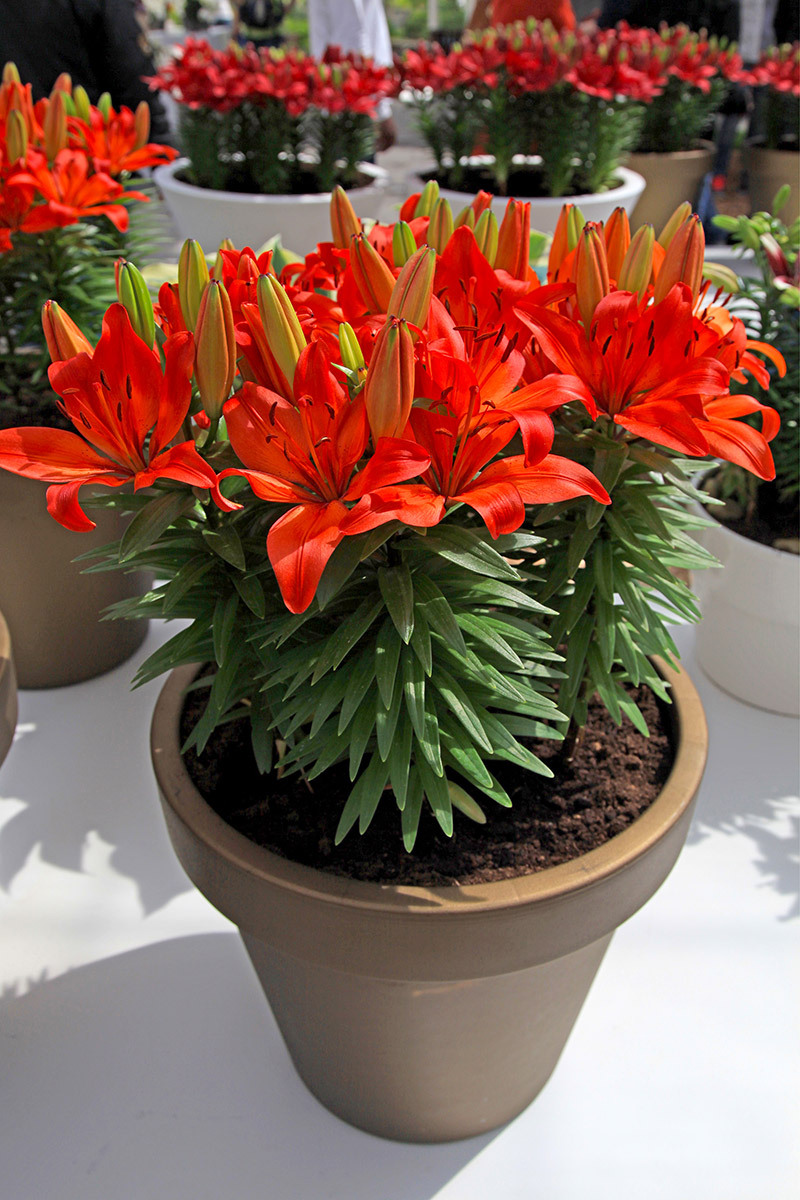Simple Steps to Nurture Your Cut Flowers
Posted on 21/08/2025
Simple Steps to Nurture Your Cut Flowers
Nothing brings life and color to a room quite like a vibrant bouquet of cut flowers. However, after enjoying their beauty for a few days, many people find themselves lamenting the drooping stems and wilting petals of their once-lively arrangements. If you want to nurture your cut flowers and help them last longer, follow this comprehensive guide designed to keep your floral displays looking fresh and gorgeous for as long as possible.

Understanding the Needs of Cut Flowers
Cut flowers are living organisms, even after being separated from their parent plant. They still require certain conditions to remain healthy. Their needs are simple but non-negotiable - water, food, cleanliness, and the right environment. By addressing these requirements, you can significantly extend the vase life of your fresh flowers.
1. Start with Quality Flowers
The journey to long-lasting blossoms starts even before you put them in a vase. Whether you purchase blooms from a flower shop or snip them from your garden, choose specimens that:
- Look fresh and hydrated - avoid any stems that appear wilted or limp.
- Have firm, unopened buds for blooms such as lilies, roses, or tulips. Flowers that are fully open may not last as long.
- Show green and healthy foliage - skip stems with yellowing or slimy leaves.
Preparing Your Cut Flowers for Vase Life
2. Trim the Stems Correctly
Upon bringing your cut flowers home, immediately trim the stems at an angle--preferably at a 45-degree angle--using sharp scissors or a knife. This increases the surface area for water absorption and prevents the ends from resting flat against the bottom of the vase.
- Re-trim stems every couple of days to ensure they continue to absorb enough water.
- For woody stems (like roses or lilacs), even small vertical splits in the base can help with hydration.
3. Remove Lower Leaves
Any foliage that would sit below the waterline in the vase should be removed. Leaves submerged in water rot quickly and produce bacteria, which can clog flower stems and decrease their longevity. This simple step can drastically increase the vase life of your favorite cut flowers.
4. Clean Your Vase Thoroughly
Vases often harbor unseen bacteria from previous arrangements. Clean your container with hot, soapy water and rinse well. For an added boost, use a mixture of one part vinegar to ten parts water. A clean environment reduces the risk of infection and encourages fresher, healthier blooms.
Water and Nourishment: The Lifeblood of Fresh Blooms
5. Use Fresh, Room Temperature Water
Fill the vase with fresh, room temperature water before adding your stems. Cold and hot water can shock delicate flowers and reduce their lifespan. Some flowers, like tulips, prefer cooler water, but most cut flowers do best at moderate temperatures.
6. Add Flower Food, If Available
Most bouquets come with a small packet of flower preservative. Don't throw it away! These powders contain sugars (for energy), a biocide (to prevent bacterial growth), and acidifiers (to lower the water's pH). If you run out, you can make a homemade solution with:
- 1 teaspoon sugar (feeds the flower)
- 2 teaspoons lemon or lime juice (acidifies the water)
- 1 drop bleach (keeps water clear of microbes)
- Mixing in 1 quart/liter of water
Note: Only a tiny amount of bleach is needed; too much can harm your flowers.
7. Change Water Regularly
One of the easiest ways to nurture your vase flowers is to change the water every two or three days. Each time, trim a small amount from the base of each stem and wash the vase thoroughly to eliminate accumulating bacteria and algae.
8. Monitor and Adjust Water Levels
As flowers drink, the water level in the vase drops. Always keep the stems submerged by topping up with fresh water daily. This is especially important for thirsty blooms like hydrangeas and sunflowers.
Maintaining the Right Environment for Your Cut Flowers
9. Keep Blooms Cool and Out of Direct Sunlight
Temperature and light have a significant impact on how long cut flowers last. Keep arrangements away from:
- Direct sunlight
- Heating vents or radiators
- Cooling drafts or fans
- Ripening fruit - fruit emits ethylene gas, which can speed up the aging of flowers
A cool room, away from fluctuating temperatures, will slow down wilting and extend the life of your bouquet.
10. Watch for Wilted or Decaying Stems
Remove fading flowers and foliage as soon as you notice them. Decaying plant material produces ethylene gas and bacteria, harming the remaining healthy flowers. Pruning out dead stems doesn't just make your arrangement look better - it keeps it healthier for longer.
Addition Tips to Prolong the Life of Your Cut Flowers
11. Use the Right Vase for Each Flower Type
Some flowers--like tulips and daffodils--need tall, narrow vases for support, while bushier blooms like hydrangeas thrive in wider, shorter containers. Match vase shape and size to the natural inclination of each flower stem for the best results.
12. Avoid Overcrowding Stems
Cramming too many stems together can cause them to compete for water and restrict air circulation, making flowers more susceptible to mold and bacteria. Arrange your flowers so that each stem has a bit of space.
13. Special Care for Specific Flower Types
- Tulips: Tilt flowers upright with newspaper and place them in water for a few hours to straighten their stems before arranging.
- Daffodils: Their sap can be toxic to other blooms; keep them in water alone for a few hours before mixing into bouquets.
- Hydrangeas: Submerge their heads in water for 30 minutes if wilting occurs - they absorb moisture through petals as well.
- Peonies and Roses: Remove extra petals from around buds to promote opening and freshness.
14. Handle Petal Bruising Carefully
Some delicate blooms--like gardenias and lilies--bruise easily. Always handle cut flowers gently, and avoid touching the petals more than necessary.
Common Myths About Nurturing Cut Flowers
There's no shortage of folk advice when it comes to caring for fresh cut flowers. Here are a few myths--along with the facts:
- Adding aspirin to the water revives flowers: While aspirin can lower pH levels, it lacks the other vital ingredients in flower food.
- Pennies prevent bacteria growth: Pennies made after 1982 don't have enough copper. Bleach or flower food works better.
- Sugar water is all you need: Sugar is only one part of flower nutrition--biocides and acidifiers are also crucial.
Creative Ways to Reuse Fading Blooms
Even with the best nurturing, every bouquet eventually fades. But fading flowers can still bring joy! Here are creative ideas to give your nearly-spent cut flowers a second life:
- Drying: Hang sturdy flowers like roses or lavender upside down in a dark, dry place to create everlasting arrangements.
- Pressing: Flatten petals between books or in a flower press to use in art, bookmarks, or cards.
- DIY Potpourri: Dry the petals, add a few drops of essential oil, and store in a bowl for homemade fragrance.
- Floral Bath: Add faded petals to a bath for a luxurious, spa-like experience.
Conclusion: Enjoying Longer-Lasting Cut Flowers
Whether you're preparing a lush garden arrangement or have received a store-bought bouquet, these flower care tips will ensure your cut flowers stay looking lovely. So, the next time you fill your vase, follow this comprehensive flower care guide and experience the difference it makes!

Frequently Asked Questions (FAQs) About Nurturing Cut Flowers
How often should I change the water in my flower vase?
Change the water every 2-3 days for best results, cleaning the vase and retrimming the stems each time.
Can I make homemade flower food for my cut flowers?
Yes! You can use the recipe above (sugar, lemon juice, and a drop of bleach), or use commercial packets provided with your bouquet.
What is the best temperature for cut flowers?
Most flowers thrive in cool, shaded rooms with temperatures between 65-72?F (18-22?C) and away from heat or direct sunlight.
Are there flowers that last longer than others?
Yes. Alstroemeria, chrysanthemums, carnations, and lilies are known for their excellent vase life when cared for properly.
Enhance Your Space With Fresh, Well-Nurtured Cut Flowers
Fresh flower arrangements are a simple pleasure, but with the right care for fresh cut flowers, that pleasure can last much longer. All it takes is a little knowledge and consistency. Make nurturing your cut flowers a routine, and you'll enjoy stunning, longer-lasting bouquets in every season.
Latest Posts
A Florist's Guide to [LANDMARK/NEIGHBOURHOOD]: Best Blooms Nearby
Florist's Picks: Best Flower Varieties for [POSTCODE/NEIGHBOURHOOD] Homes
What's Blooming in [AREA] 2025: Flower Festivals & Community Events
Best Flowers for [AREA] Gardens: Local Expert Recommendations






